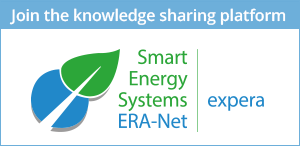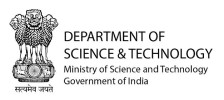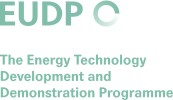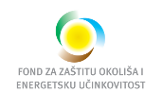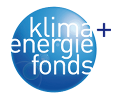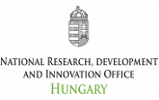COLLABORATION WITH AND BEYOND ERA-NET SES PROJECTS
Working build up the mutual knowledge and collaboration between projects, enable a thorough discussion of the main lessons learnt by the projects, and feed the ERA-Net SES Knowledge Community with state-of-the art information. In physical and virtual meetings, representatives of ERA-Net SES funded projects meet each other and invited experts. The working groups are open to those consortia that could not be awarded in ERA-Net SES calls as well as external initiatives, institutions and project consortia. Moreover, the findings and output of the knowledge community will help the program managers and policy makers from the involved funding partners to shape future calls and programs.
The following working groups exist and are being managed on the expera platform:
- System Architecture and Implementation Modelling
To support the energy transition, actors/stakeholders need to speak a common language and have comparable approaches to the energy system. The Working Group System Architecture and Implementation Modelling (SAIM) aims at the development of recommendations on major topics such as technical models and architectures (in energy and ICT), interoperability, data, and technical aspects of market architectures. It tackles these issues from various angels. The main focus of the Working Group is on strengthening IT related solutions and investigating how the parts are connected to each other. For the latter, the SAIM group discusses architectural structures of the energy system which is and will in the future be even more made up of different parts which all need to be taken into account. Modelling and architecture approaches are discussed and evaluated regarding their usability for the JPP ERA-Net SES and other national and transnational projects. Microgrids and cellular approaches to Smart Grid architectures are being discussed and evaluated as well as the technical support for the development of Energy Communities.
- Storage and Cross Energy Carrier Synergies
The energy system of the future will be characterised by a high penetration of energy from renewable energy sources. Because of the intermittency of some renewables, guaranteeing grid stability in the future makes finding and deploying new balancing mechanisms indispensable. Storage and cross energy carrier synergies are means that will become a cornerstone for a safe and stable energy supply in the future. Still, there is a lot of research and market scale effects needed for making these technologies reliable and affordable. Further, regulation has to be adapted as well as new business models need to be found in order to make widespread application feasible.
- Regulatory and Market Development
In order to achieve a European common energy policy, an internal market for the products and services of the energy sector must be established. To that end aim of this Working Group is to identify the consequent barriers, new challenges and needs emerging both in the field of regulation and business models for RES integration, smart metering, demand response, storage. New trends in smart grid and storage regulation to face these challenges will be addressed, based on known positive experiences in pilot projects. The role of DSOs, TSOs and new market players in the future marketplaces will be analysed.
- Consumer and Citizen Involvement
Involving residential as well as commercial customers in smart grid trials has proven to be more difficult than expected just a few years ago. Rewards and business cases remain difficult to define and a shared knowledge on how to approach, activate and engage the broad public in the energy system of the future is crucial knowledge for all stakeholders in the core projects, the Steering Board, the Support Team as well as in external projects.
- Interoperability and Standardisation
Interoperability and standardisation are one of the keys to a common European vision for smart grids. Only if all stakeholders agree on a common European interoperability outline, Europe can become a single market for Smart Grid that is lucrative for smart grid technology suppliers and enables sound new business models. The Working Group can discuss standards and press for the commercial breakthrough of standards to be applied in the ERA-Net SES projects. Questions that the Working Group tackles are the ever increasing importance of data models, design methodologies and interoperability testing procedures, Smart Grids standardization, the most urgent standardization gaps and the interplay between "de facto” industry standards vs "de jure” international standards. Close cooperation with the System Architecture and Implementation Modelling Working Group is foreseen, with particular reference to the European M /490 process and the Smart Grid Architecture Model (SGAM), which is of great relevance for the implementation of interoperable systems.
- Regional Matters
Regional and local energy systems and networks are composed of available energy sources, built infrastructure, specific production, and consumption characteristics as well as user and consumer structures from different sectors, including the transportation system. They are part of the living environment of citizens, including, in some cases, highly ambitious clean energy goals of specific communities and regions. Regional and local energy systems provide appropriate services to consumers and citizens as well as to the overall European energy system to help ensure the security of supply, maximise the primary energy efficiency and deliver a high share of renewable energy. JPP SES projects contribute to such energy systems providing methods, tools, plans and guidelines to integrate energy in the frame of a regional point of view. Their contributions are based on the experience from their trial sites and research. These contributions are discussed in the Regional Matters Working Group, in addition to examining current developments in the relevant research and innovation ecosystems. Different energy systems scales are covered, from microgrids, cellular systems (systems of systems) and islands, to buildings, cities, districts, and regions. Further topics are Energy Communities (ECs), planning and forecasting tools (including district heating and cooling, mobility), resources protection and exploitation, added values for the prosperity of the region and societal impact.
The working groups are managed and moderated by the team of the Knowledge Community Management (B.A.U.M., RSE, CLIC) which is an integral part of the ERA-Net SES Coordination.
For further questions, please contact: knowledgecommunity[at]eranet-smartenergysystems.eu
